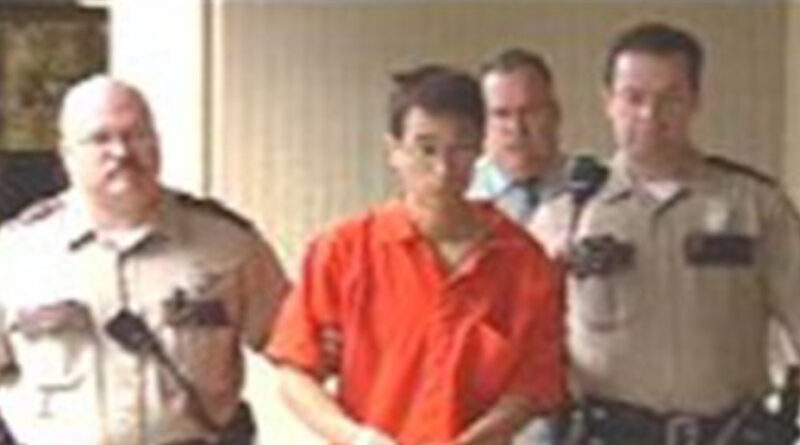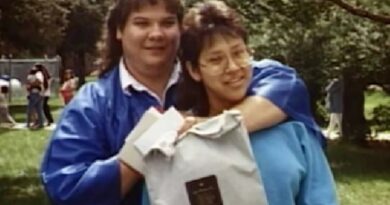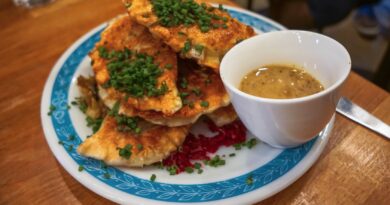Ocean Shores 4th of July Stabbing Death and Racial Tension in Washington State
Ocean Shores, Washington, is a small coastal town of roughly 3,000 residents, nestled on the Pacific shoreline. In July, the town swells with holiday visitors who come to enjoy beach bonfires, kite flying, and the novelty of boardwalk arcades. Under normal circumstances, Ocean Shores is known for its laid-back atmosphere, friendly locals, and the soothing rhythm of pounding surf. Yet on the night of July 4, 2000, its reputation would be forever marred by an act of extreme violence that shattered the town’s sense of safety—and revealed deep undercurrents of racial tension.
Who Was Christopher Kinison?
Christopher “Chris” Kinison was a 20-year-old local who had grown up in Ocean Shores. Friends described him as a natural scrapper who never backed down from a challenge; he’d held odd jobs around town, including a stint making sandwiches at the local Subway. Though some recalled he had trouble keeping a steady job, others emphasized that Chris maintained camaraderie across racial lines—one close friend was half-Filipino, another of Native American heritage—and that slurs hurled during the Fourth weekend were meant as bait to pick a fight, not expressions of genuine hatred.
The Visitors: Minh and Hung Duc Hong and De Qiang Chen
That holiday weekend, three men from Seattle—26-year-old twin brothers Minh and Hung Duc Hong, and their friend De Qiang Chen—drove to Ocean Shores for a brief getaway. Minh worked in his family’s restaurant back home and was known for his soft-spoken manner; Hung had a calm demeanor, and De Qiang, ever the joker, kept spirits light. Unaware of any hostility beneath Ocean Shores’ postcard veneer, the trio intended nothing more than to enjoy July Fourth festivities and scenic drives.
Tension Builds at the Texaco Station
Shortly after 1:00 a.m. on July 4, the three men pulled into the Ala Mar Texaco mini-mart parking lot for refreshments. Outside, Chris and several local acquaintances were drinking beer, waving a Confederate battle flag, and joking among themselves. As the Hongs and Chen stepped inside to buy soda and snacks, Chris and his friends began taunting them through the glass. Witnesses later testified that racial epithets flew, fingers drew slits across throats, and someone banged on the window to intimidate the newcomers.
The Confrontation Escalates
Feeling threatened, Minh scaled two small paring knives from the store’s rack before exiting. Outside, the trio was met by the same taunts, but now edged with physical menace: shoves, spit, and the sight of a group blocking their path to the car. According to de Qiang and Hung, Chris flicked the Confederate flag tauntingly as he advanced. Fearing for their lives, the Hongs and Chen tried to back away—but their assailants pressed in, surrounding them under the harsh glow of parking-lot lights.
The Fatal Stabbing
In the ensuing struggle, Minh Duc Hong plunged both knives into Chris Kinison. Though the total stab count was later established at 23 wounds, it was two critical injuries—piercing the heart and a major blood vessel—that caused rapid blood loss. Passersby tried to pull Minh away as he cried out that he’d been cornered and feared for his own life. Chris collapsed on the asphalt; despite frantic efforts by friends who cradled him, he was pronounced dead at the scene.
Emergency Response and First Reactions
Local deputies arrived within minutes after frantic 911 calls. They found Minh trembling beside Chris’s body, the knives clutched in his hands. Hung and de Qiang stood nearby, shaken but unharmed. The deputies quickly secured the area, summoned EMS, and took the three men into custody for questioning. News of the killing rippled through Ocean Shores by dawn, leaving many residents dazed—some out of genuine shock, others fearful of tourists and potential newcomers.
Manslaughter Charges and the FBI Inquiry
Prosecutors in Grays Harbor County charged Minh Duc Hong with first-degree manslaughter, citing the number of wounds as evidence he had gone beyond reasonable self-defense. Hung and de Qiang faced no charges, though prosecutors kept a reserve option on the table. The town’s Asian-American community and civil-rights groups criticized local police for a history of ignoring racial harassment reports, prompting the FBI to open a parallel civil-rights investigation into whether Kinison’s friends had violated federal statutes by obstructing public access and targeting the trio because of their race.
The Trial and Hung Jury
Minh’s trial convened in Montesano in March 2001. Testimony painted a picture of escalating threats: racial slurs hurled, a deadly weapon presented (the flag), and a cornered victim acting out of visceral fear. The defense urged the jury to view the knives as instruments of last resort; Minh had no criminal record and had given himself up. After several days of deliberation, the jury deadlocked 11–1 in favor of acquittal. With one holdout convinced self-defense applied, prosecutors opted not to retry, effectively freeing Minh.
Ocean Shores Divided: Community Fallout
In the months that followed, Ocean Shores remained bitterly split. Many white residents and Kinison’s circle insisted Chris was no racist and had been goaded into violence purely out of bravado. Asian-American advocacy groups and outsiders countered that a young man on his home turf had weaponized symbols of hate (the Confederate flag) and that anti-Asian hostility—though portrayed as isolated pranks—reflected real prejudice in the town.
Letters to the editor in regional newspapers decried both the violent outcome and the town’s slow reckoning with hate. Some locals erected makeshift memorials for Chris; others attended solidarity vigils supporting the Hongs and de Qiang, warning potential visitors that racial harassment might go unpunished.
Legal and Moral Questions Raised
The case sparked wider debate over hate-crime enforcement in America. Critics pointed out that federal and state statutes presume police can spot bias crimes, yet provide neither guidelines nor training. Was this a simple brawl gone wrong, or an act of racial terror narrowly contained by self-defense? The mistrial left no definitive answer, prompting academics to argue for clearer legal criteria and standardized hate-crime protocols.
Lasting Legacy and Reflection
More than two decades later, the Kinison-Hong stabbing remains a touchstone in discussions of race, violence, and community identity. Ocean Shores leaders have since enacted an anti-racism proclamation, and local schools include diversity training in their curricula. Yet the memory of that night endures: Chris’s name recalled by some as a tragic loss of a young life, and Minh’s ordeal cited by others as emblematic of the precarious line between self-defense and vigilantism.
For Ocean Shores, the Fourth of July will never again be purely a celebration of independence and fireworks. It is also an annual reminder of how quickly festivity can turn to tragedy, how symbols can wound more deeply than fists, and how small towns, like all of America, still grapple with the meaning of justice when hatred flares.
Discover more from City Towner
Subscribe to get the latest posts sent to your email.





UUmmm, Ocean Shores is NOT between Seattle and Aberdeen. you have to literally drive through Aberdeen to go then aprox 35 minutes drive more straight towards the coast. Seattle has nothing to do with Ocean Shores. I live in Aberdeen and work in Ocean Shores. Not great research.
Thanks for the update!